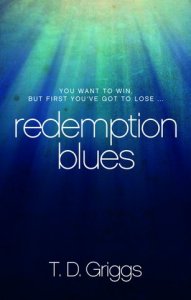Perhaps it’s worse in Oxford, like the weather.
Oxford, England, that is: a city stiff with history, bristling with dreaming spires, and teeming with writers. You can hear the scratching of their metaphorical quills even over the patter of the rain (and in Oxford, that’s saying something).
I’m talking about literary elitism. That’s what’s worse in Oxford.
Well, it shouldn’t surprise me too much. I have a background in history, and I ought to know that writing has always been an occupation for the privileged. In the Middle Ages literacy was virtually a form of shamanism, and could only be acquired by those adepts who had the money or the time – that meant churchmen and the nobility. Everyone else was too busy scraping a living and staying warm. The ability to write conferred and preserved power among those who mastered it.
These kinds of attitudes die hard. So it shouldn’t come as a shock that in this month of Oxford’s Literary Festival there’s a certain amount of genuflecting going on here at the feet of the literary great and good. People like novelist Julian Barnes and poet Seamus Heaney commanded up to £50 a seat for an hour’s chat – that’s a pretty hot ticket by British standards. In the case of Julian Barnes I actually paid this sort of money to hear him engaged in a cosy chat with an old pal of his, which I might have overheard for free in the bar of the local pub.
Well, and perhaps it doesn’t do any harm. For the record I like Barnes’ stuff, and revere Seamus Heaney. And if these prices are a trifle stiff, at least the whole shenanigans engages people with writing and engenders respect for writers. And we could all do with a bit of that.
But I do like to remind myself, and anyone else who’ll listen, that even if the ability to write well is a rare enough gift, the capacity to appreciate writing should be open to all.
 I write accessible general fiction – some historical novels, and some contemporary mysteries. Now, there are those who assume that these genres are somehow lower down the food chain than fully formed literature (whatever that is). The theory is that if it’s popular, it can’t really be good.
I write accessible general fiction – some historical novels, and some contemporary mysteries. Now, there are those who assume that these genres are somehow lower down the food chain than fully formed literature (whatever that is). The theory is that if it’s popular, it can’t really be good.
If that were true, writing would be one of the few occupations whose practitioners rate failure higher than success. I can’t think of any others which do this: maybe flying a kamikaze aircraft would come close (at least it would if I was flying one).
But of course it isn’t true that popularity is a negative.
Try Shakespeare – a man who wrote murder mysteries for a living. Shakespeare didn’t set out to please some intellectual ozone layer of eggheads. He wrote to please a rough and ready audience, common people with little or no education and a few wealthy merchants and nobles. And he used the themes we all try to use to engage our audiences – murder and revenge, love and jealousy, bawdy humour – in short, sex, drugs and rock’n’roll. He wrote most of his plays in a couple of weeks each, under the pressure of strict deadlines. He performed in many of them, and changed the scripts as he went along, pinching bits from other playwrights and having bits pinched from him in turn. He did not consider the ivory towers of academe. He wanted only to keep the audience satisfied, so that they’d pay his company’s wages, and not throw too much soft fruit if things on stage dragged a bit.
No wonder he was popular. He had to be. No wonder he still is.
And he still will be when many of the unreadable darlings of the critical intelligentsia have sunk gibbering into obscurity.
T.D.Griggs has written one million seller, the contemporary drama REDEMPTION BLUES, which has just been made available for the first time to a US audience. He has also written the Victorian epic saga DISTANT THUNDER and the modern day father-son novel THE WARNING BELL (under pen-name Tom Macaulay). Griggs, who holds British and Australian nationality, has lived and worked on four continents and now lives in Oxford, UK, with his wife Jenny. Learn more about T.D at his Website: www.tdgriggs.co.uk


Hah! “Fully formed literature”. I love it. Take that, you snobs. I’m with you. I want to write stories that an average person can lose themselves in and enjoy. I have no ambition to win the most prestigious award (whatever that is where you live) for the ‘next great novel’
Nice to see we read the same postings. You’re popping up everywhere with great comments!
Thanks, Yvonne!
Another blow is struck for those of us who are story tellers (writers) who want an audience to appreciate our output. Hoist one for the bard!
How interesting that you don’t mention the widespread speculation about whether Shakespeare truly penned those marvelous works! Perhaps you know more than the naysayers, or am I/have I missed something here? I believe in being true to yourself and writing good stuff for a wide audience. At least it gets more people reading! Thanks for the article.
Thanks, Ester. To be honest, the debate has never really turned me on. It seems to me to be a bit like asking whether Shakespeare was written by Shakespeare or by another man of the same name. We know so little about the man. But we do know about the plays….
Love your closing paragraph: “…gibbering into obscurity.” Ooo. Flavorful.
Great post. Thanks.
Thoughtful reply. Thanks a lot. I think it’s worth noting, though, that pretty well everyone who has stood the test of time WAS popular in their own day among whatever audiences were open to them, despite the received wisdom to the contrary. Popularity doesn’t guarantee a permanent place in the Pantheon, but virtually everyone who has won such a place was indeed popular.
Sorry – this was meant for a following comment!
Nice post, T.D. It’s always good to be reminded that Shakespeare wrote *popular* plays. 🙂 (I might pay $75 to see Seamus Haney myself!)
Thank you Mr. Griggs. Please come back soon with another literary discourse to entertain and enrich our sorry little minds. Did you know that Will’s birthday is this week?
Do you know I’d forgotten that? Thanks for reminding me: I’ll have a stoop of sack to celebrate.
Wonderful post, sharing to my facebook page.
Thankyou, Lois.
Comparing popularity in Shakespeare’s (or even Dickens’s) time to now is spurious. They had neither the common literacy nor the dissemination we enjoy now. Literature is not fully formed until it has had the nod from generations subsequent to those in which it is generated. One cannot write “literature” – it becomes so with the consensus of the reading masses down the line, however that consensus comes about, and yes, the old universities of the world do have a hand in what is chosen and what lies by the roadside on fallow ground.
So we might find a few of today’s roaring successes finding favour with future generations, and some roaring successes that fall into oblivion, and few of us can claim they had a hand in deciding which. It “just happens” – or so we like to think. The John Fowleses and AS Byatts and Julian Barneses of this world might very well fall into obscurity… and the Dan Browns and JK Rowlingses might rise to occupy the veneration of the years of literacy 2080-2104 and further down the line. We have little to do with it from this distance, except to admit to guilt in creating that popularity.
Who were Shakespeare’s competitors? Or Dickens’s? Or those of Pepys and Arnold and Swinburne? Did they each have eight million rivals for their places as we do now? Perhaps the authors of today have too scant an understanding of what has gone before, and too naive an idea of what it is they are doing now, to even suppose what might happen to their writings.
Thoughtful reply. Thanks a lot. I think it’s worth noting, though, that pretty well everyone who has stood the test of time WAS popular in their own day among whatever audiences were open to them, despite the received wisdom to the contrary. Popularity doesn’t guarantee a permanent place in the Pantheon, but virtually everyone who has won such a place was indeed popular.
Excellent post, TD.
Well, thank ‘ee kindly. I’m encouraged to post again!
Thanks for an excellent post, Mr.Griggs!
No, thank you.